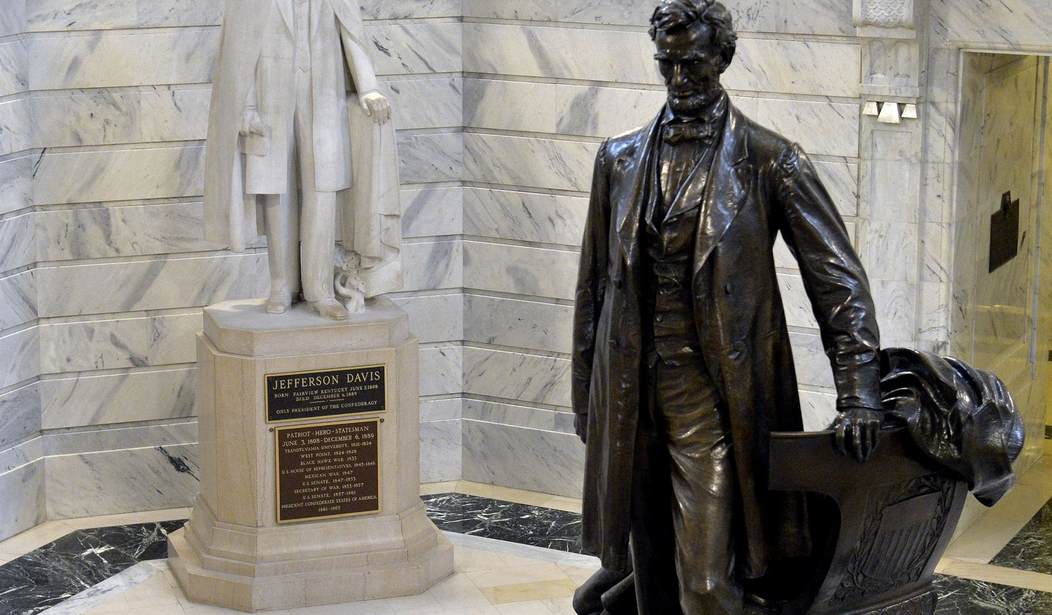This coming week we recognize the federal holiday celebrating George Washington's birthday. Many states now recognize President Abraham Lincoln's birthday on the same day. For retail advertisers, it's more about the sales than anything else, and for some school systems that had snow (or ice/cold) days earlier in the year, it's a chance to make up a day of instruction.
My challenge to you this year is to pause, reflect and reconsider how Washington and Lincoln have shaped our country, and how their actions can still influence and shape our future.
Washington almost didn't make it to our Revolution. While serving in the French and Indian War, Washington had two horses shot out from under him and four bullets pierced his clothes. These near-death experiences may have provided Washington with a different perspective, reminding him, as I was reminded by a friend yesterday who was en route to a funeral, to remember that "every day is a gift."
Washington, our first commander in chief, was given that title in 1775 by the Second Continental Congress. Though he started as a commander without troops, he eventually led the Continental Army troops for all eight years of the Revolutionary War. Perhaps his most famous achievement was leading his forces across the Delaware River overnight on December 25-26, 1776, in a surprise attack on Hessian forces in Trenton, N.J.
After a brief retirement, Washington returned to our country's service in 1787, presiding over the Philadelphia Convention. In 1789, 14 years after agreeing to serve as commander in chief, Washington was voted unanimously by the Electoral College to become our first president. Throughout his service to our country, Washington recognized that it was not about him, but about our country.
In 1797, as he was leaving the presidency, he published a "Farewell Address" designed to provide guidance. The "disinterested warnings of a parting friend" began by focusing on "the continuance of the union as a primary object of patriotic desire." Washington wrote, "the Constitution which at any time exists, till changed by an explicit and authentic act of the whole people, is sacredly obligatory upon all."
Recommended
He was concerned that a person's passion for party might take precedence over his or her passion for country, noting that, "sooner or later the chief of some prevailing faction, more able or more fortunate than his competitors, turns this disposition to the purposes of his own elevation, on the ruins of public liberty."
Washington noted, "of all the dispositions and habits which lead to political prosperity, religion and morality are indispensable supports." He also warned of "the accumulation of debt, not only by shunning occasions of expense, but by vigorous exertions in time of peace to discharge the debts" and "against the mischiefs of foreign intrigue."
Lincoln, who snuck into the capital city for his inauguration, held the country together during the Civil War. In a private note in September 1862, he wrote, "The will of God prevails. In great contests each party claims to act in accordance with the will of God. Both may be, and one must be, wrong. God cannot be for and against the same thing at the same time. In the present civil war it is quite possible that God's purpose is something different from the purpose of either party -- and yet the human instrumentalities, working just as they do, are of the best adaptation to effect his purpose."
The understanding by Lincoln that he was an instrument in the hand of God was echoed throughout his second inaugural address. It is a reminder that we should be aware that, at our best, we are all instruments in the hand of God, even though we are fraught with failings and failures.
Lincoln closed his address by reaching out to the Confederacy and reminding the Union that victory should be accompanied by grace. "With malice toward none, with charity for all, with firmness in the right as God gives us to see the right, let us strive on to finish the work we are in..."
This week, in honor of Washington and Lincoln, it would serve us well to reflect on their legacies and ask ourselves how we can best honor them and serve our God and our nation going forward. Despite knowing that we are humans, with failings and failures, we should still "strive on to finish the work."

























Join the conversation as a VIP Member